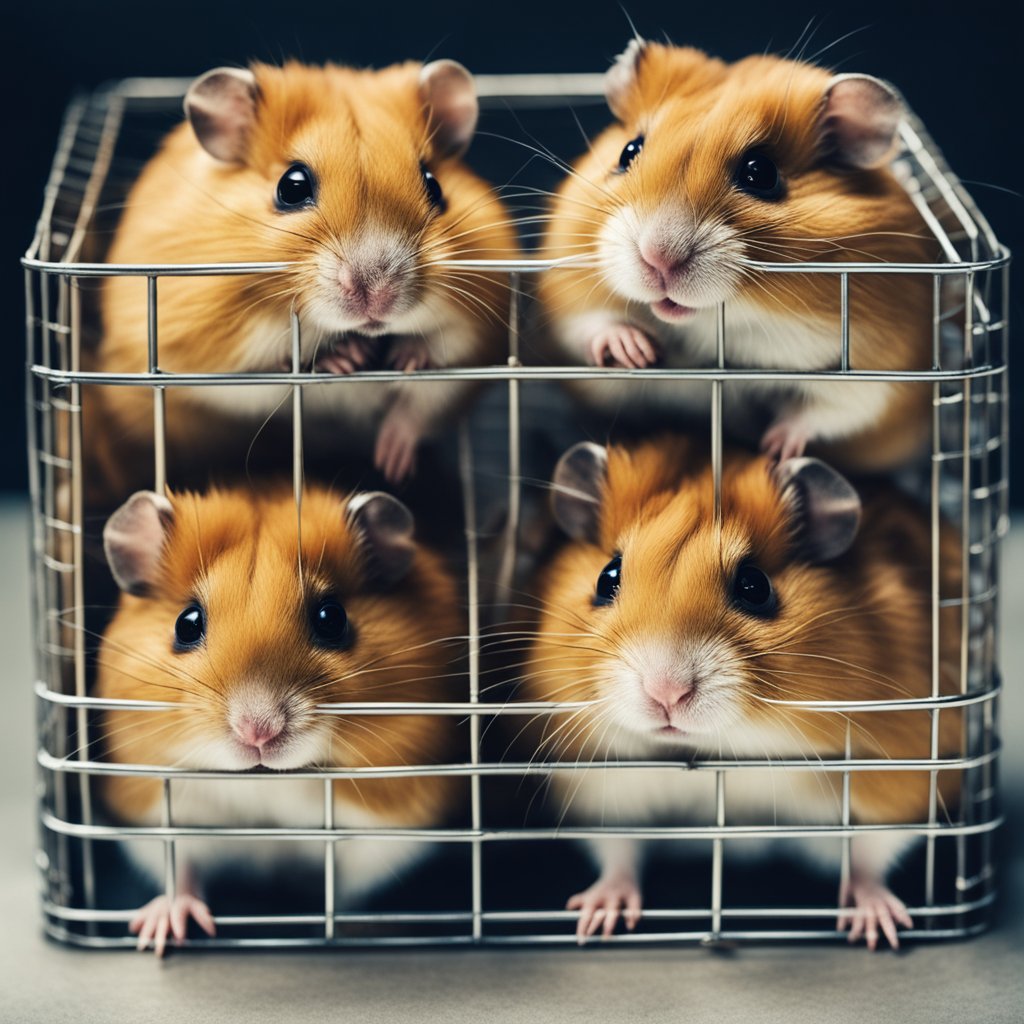Do Hamsters Feel Sadness? Exploring the Emotional Range of Pet Hamsters
Hamsters are adorable and popular pets that bring joy to households worldwide. They are cute, active, and entertaining creatures that can be a great addition to your family. However, like all animals, hamsters have emotions and feelings that can affect their behavior and well-being. As a responsible pet owner, it’s essential to understand and recognize your hamster’s emotions, including the possibility that they may feel sadness.
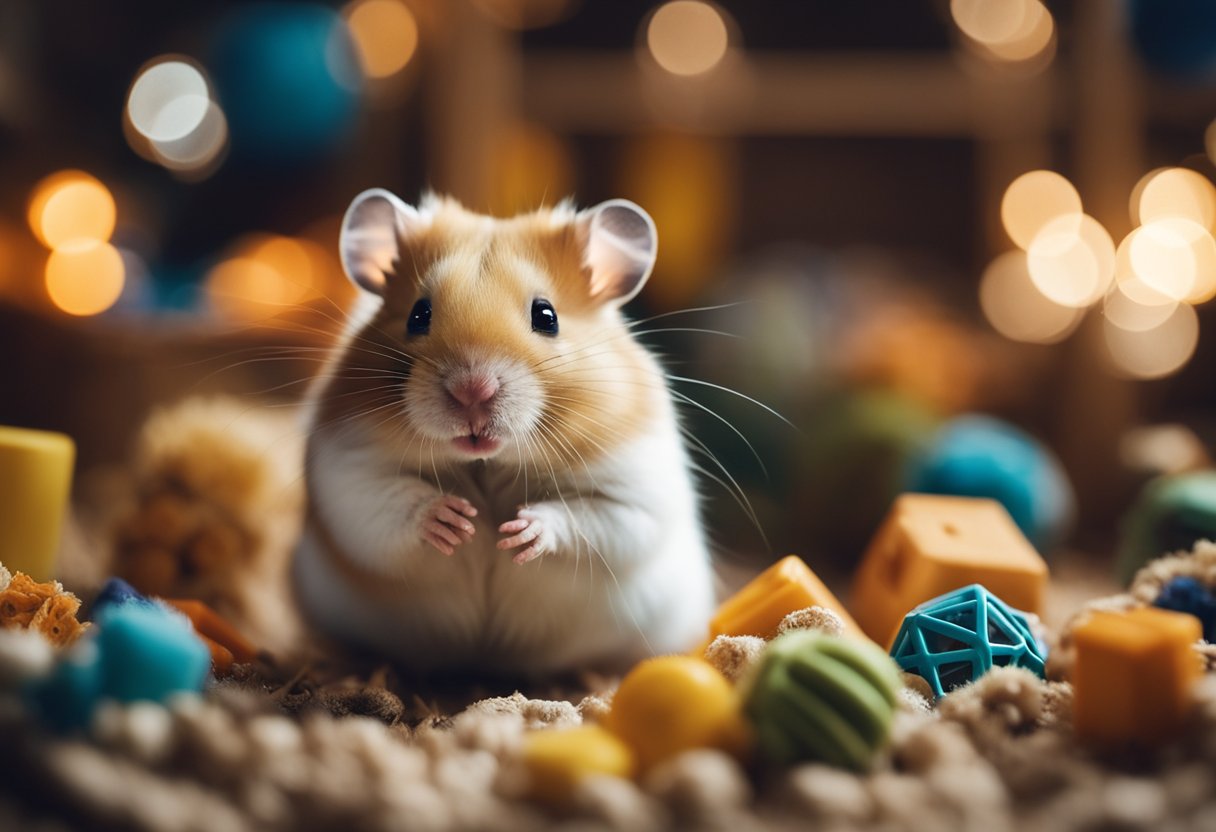
Do hamsters feel sadness? While it’s challenging to determine whether animals experience emotions in the same way as humans, studies have shown that hamsters can experience a range of emotions, including happiness, fear, and stress. So, it’s possible that hamsters can feel sad, especially when they are stressed, bored, or have limited space to move and play. In this article, we’ll explore the topic of hamster sadness and provide you with useful information to help you recognize and address your hamster’s emotions.
Key Takeaways
- Hamsters can experience a range of emotions, including sadness.
- Factors like stress, boredom, and limited space can contribute to hamster sadness.
- As a responsible pet owner, it’s essential to recognize and address your hamster’s emotions to ensure their well-being.
Understanding Hamster Emotions
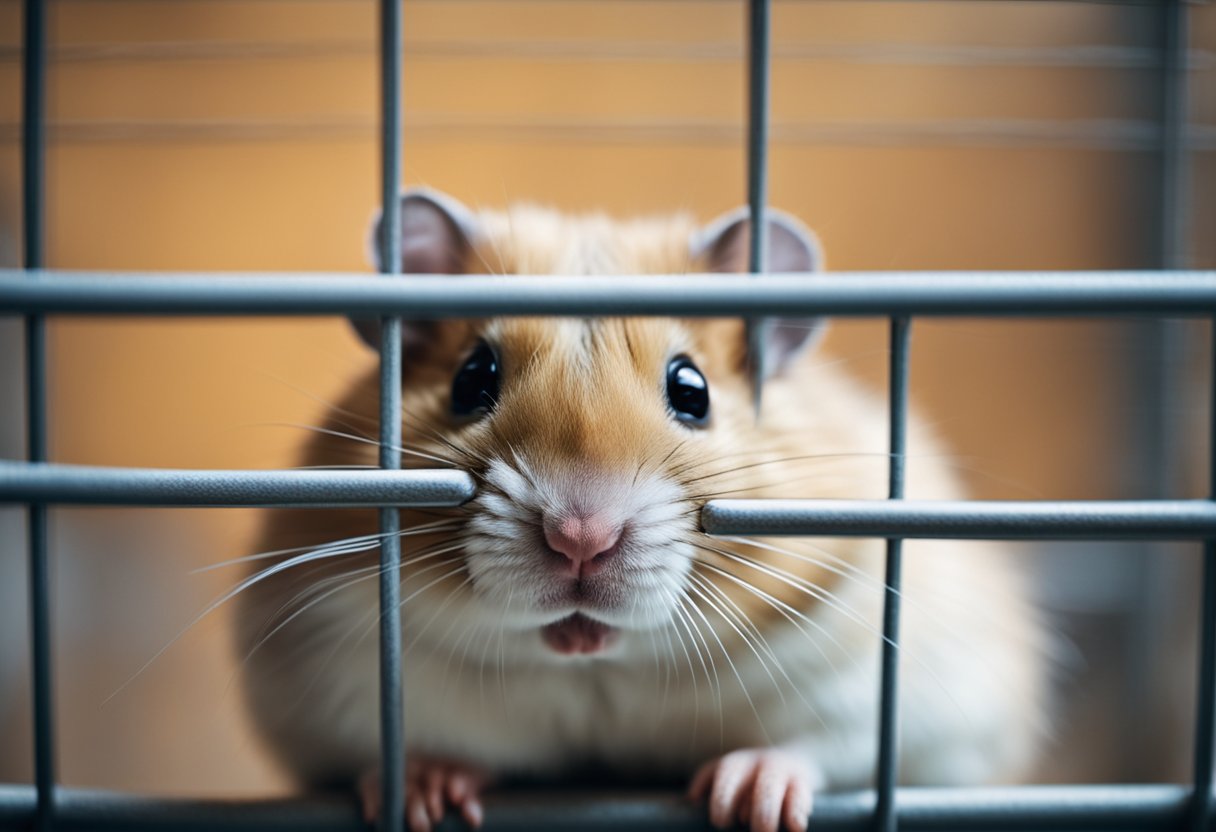
Emotional Capacity of Hamsters
Hamsters are emotional creatures that experience a range of emotions, including joy, curiosity, and fear. While they may not have the same emotional complexity as humans, they are capable of feeling sadness and other negative emotions. According to Pets Dimension, hamsters are social animals that form strong bonds with their owners. They are also sensitive to their environment and can become stressed or anxious in certain situations.
Signs of Sadness in Hamsters
It can be difficult to tell if a hamster is feeling sad, as they are known for hiding their emotions. However, there are some signs that may indicate that your hamster is not feeling its best. According to Pet Keen, hamsters may exhibit lethargy, loss of appetite, and decreased activity levels when they are feeling sad. They may also become withdrawn and avoid social interaction with their owners.
As a responsible pet owner, it is important to pay attention to your hamster’s behavior and take note of any changes. If you suspect that your hamster is feeling sad or depressed, it is important to provide them with a comfortable and stress-free environment. This may include providing them with plenty of toys and hiding places, as well as ensuring that their cage is clean and well-maintained.
In summary, while hamsters may not have the same emotional capacity as humans, they are capable of feeling sadness and other negative emotions. As a pet owner, it is important to be aware of the signs of sadness in hamsters and take steps to ensure that they are comfortable and happy in their environment.
Factors Influencing Hamster Sadness
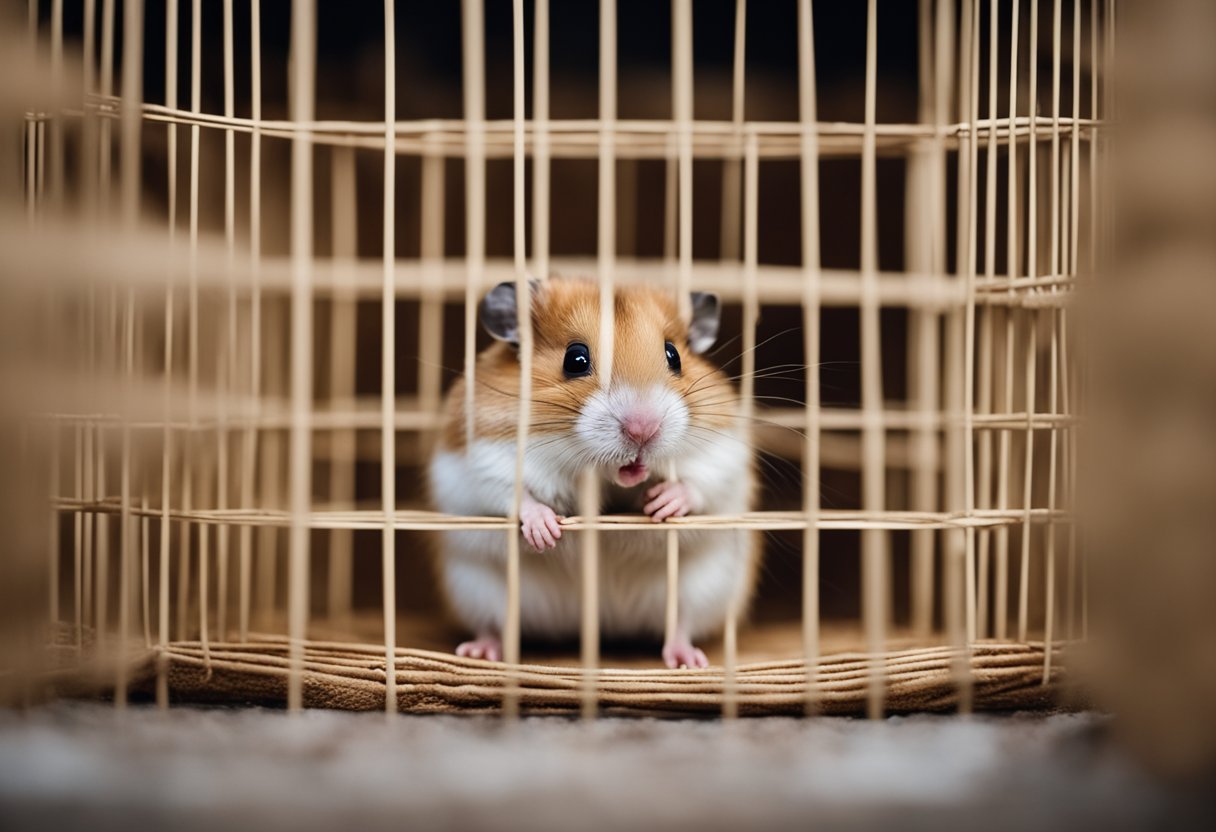
Hamsters are social animals that require a suitable environment and regular interaction with their owners to maintain good mental health. Several factors can cause hamsters to feel sad, including environmental stressors, social isolation, and physical health issues.
Environmental Stressors
Hamsters are sensitive to changes in their environment and can become stressed when their habitat is inadequate or poorly maintained. Factors such as noise, light, temperature, and humidity can all contribute to stress levels in hamsters. For example, a hamster kept in a noisy room with bright lights may experience stress, leading to a decrease in their overall well-being. Therefore, it is important to provide a quiet, comfortable, and clean environment for your hamster.
Social Isolation
Hamsters are social animals that require regular interaction with their owners and other hamsters to maintain good mental health. A lack of social interaction can lead to boredom and loneliness, which can cause hamsters to feel sad and depressed. Therefore, it is important to spend time with your hamster every day, providing them with toys and activities to keep them entertained.
Physical Health Issues
Physical health issues such as pain, illness, and injury can also cause hamsters to feel sad and depressed. Signs of physical health issues may include lethargy, loss of appetite, and reduced grooming. If you notice any of these behaviors, it is recommended to consult with a veterinarian who specializes in exotic animals. Regular check-ups and a healthy diet can help prevent physical health issues in hamsters.
In conclusion, several factors can cause hamsters to feel sad, including environmental stressors, social isolation, and physical health issues. As a responsible owner, it is important to provide your hamster with a suitable environment, regular interaction, and proper healthcare to ensure their overall well-being.
Resources
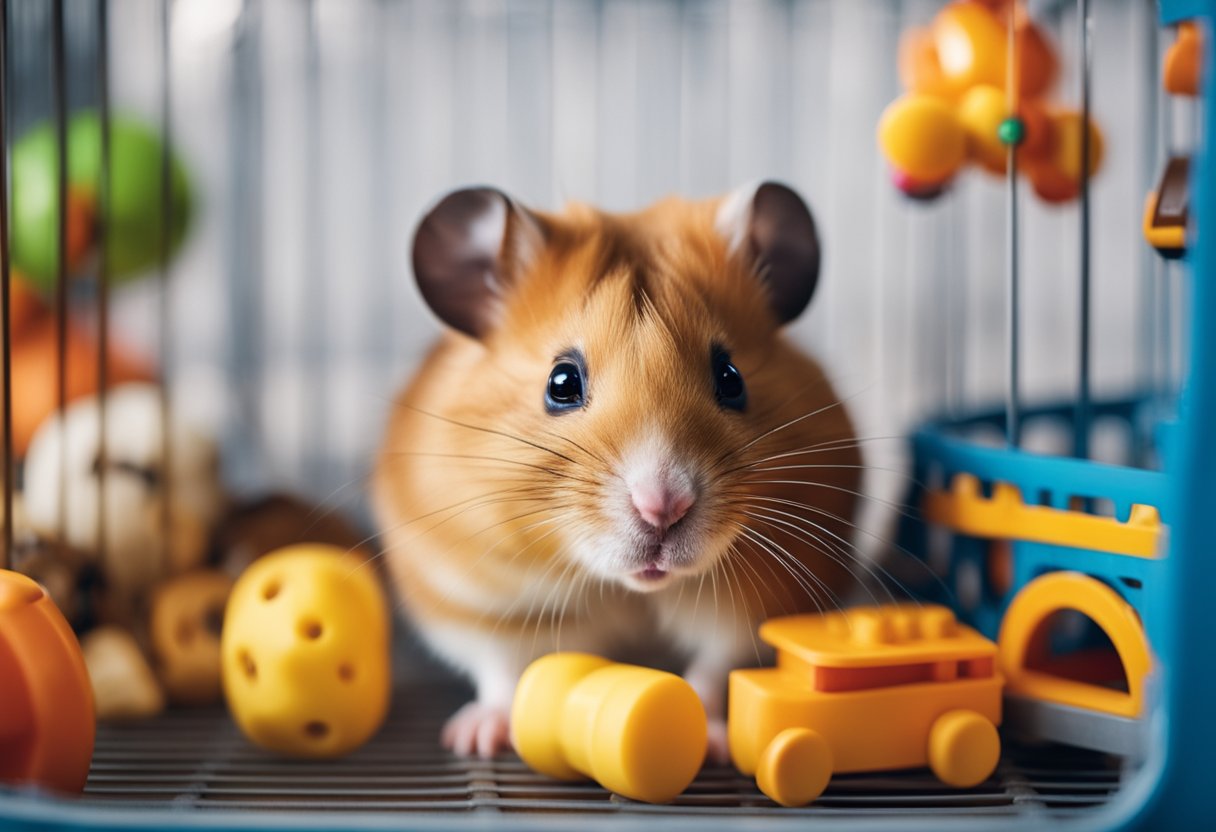
If you are interested in learning more about hamsters and their emotions, there are many resources available online. Here are a few that you may find helpful:
- Pet Keen is a website that offers information about hamster cognition and their ability to recognize other hamsters. While there is no proof that hamsters can sense human emotions, it is interesting to learn about their social behaviors.
- Pocket Pet Central is a website that discusses whether or not hamsters have feelings. The article explains that while hamsters may not express sadness in the same way that humans do, they are capable of feeling a range of emotions.
- Caring Pets is a website that lists six signs that your hamster may be stressed or sad. These signs include biting the cage, lethargy, excessive grooming, and pacing. If you notice any of these behaviors in your hamster, it may be time to take a closer look at their living conditions and make some changes.
- Pets Dimension is a website that explores the emotional lives of hamsters and offers insights into nurturing their emotional health. The article explains that understanding and responding to your hamster’s feelings is key to ensuring their well-being and building a strong bond.
- Fluffy Tamer is a website that delves into the emotional world of hamsters. The article explains that hamsters experience a rich spectrum of emotions, similar to humans and other animals. Understanding these emotions is crucial for building a strong bond with your hamster.
These resources can provide you with valuable information about hamster emotions and behaviors. By understanding your hamster’s emotional needs, you can provide them with the best possible care and build a strong bond with your furry friend.
Conclusion
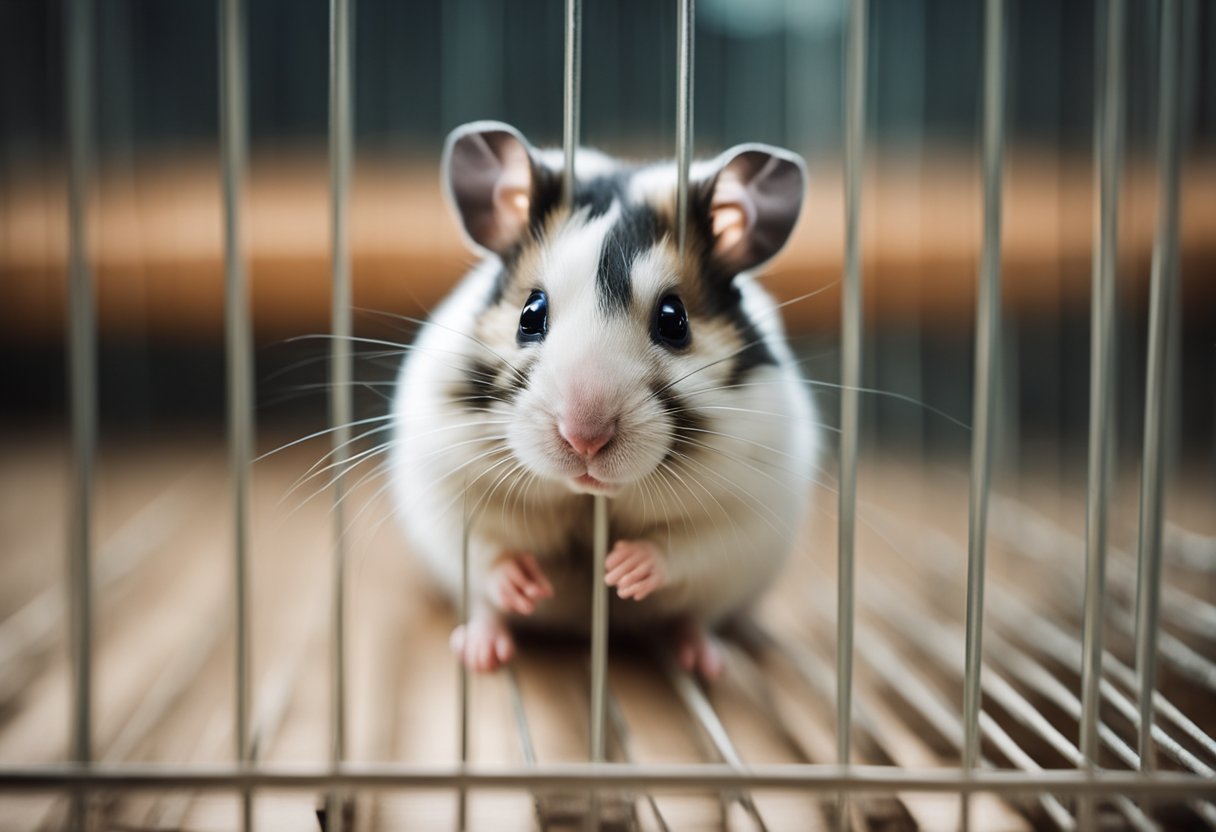
In conclusion, while it is difficult to determine whether hamsters feel sadness in the same way humans do, it is clear that they do experience a range of emotions and can exhibit behaviors that suggest they may be feeling down.
As social animals, hamsters need interaction and stimulation to thrive. Lack of socialization or environmental enrichment can lead to stress and even depression-like symptoms. Therefore, it is important to provide your pet hamster with plenty of toys, activities, and interaction to keep them happy and healthy.
Additionally, if you notice any changes in your hamster’s behavior, such as decreased activity, loss of appetite, or excessive sleeping, it may be a sign that they are not feeling well. In these cases, it is important to take your hamster to a veterinarian who specializes in small animals to ensure they receive proper care.
While the exact range of emotions that hamsters feel is still being studied, it is clear that they are complex creatures with a rich inner life. By providing them with a loving and stimulating environment, you can help ensure that your pet hamster lives a happy and fulfilling life.
Frequently Asked Questions
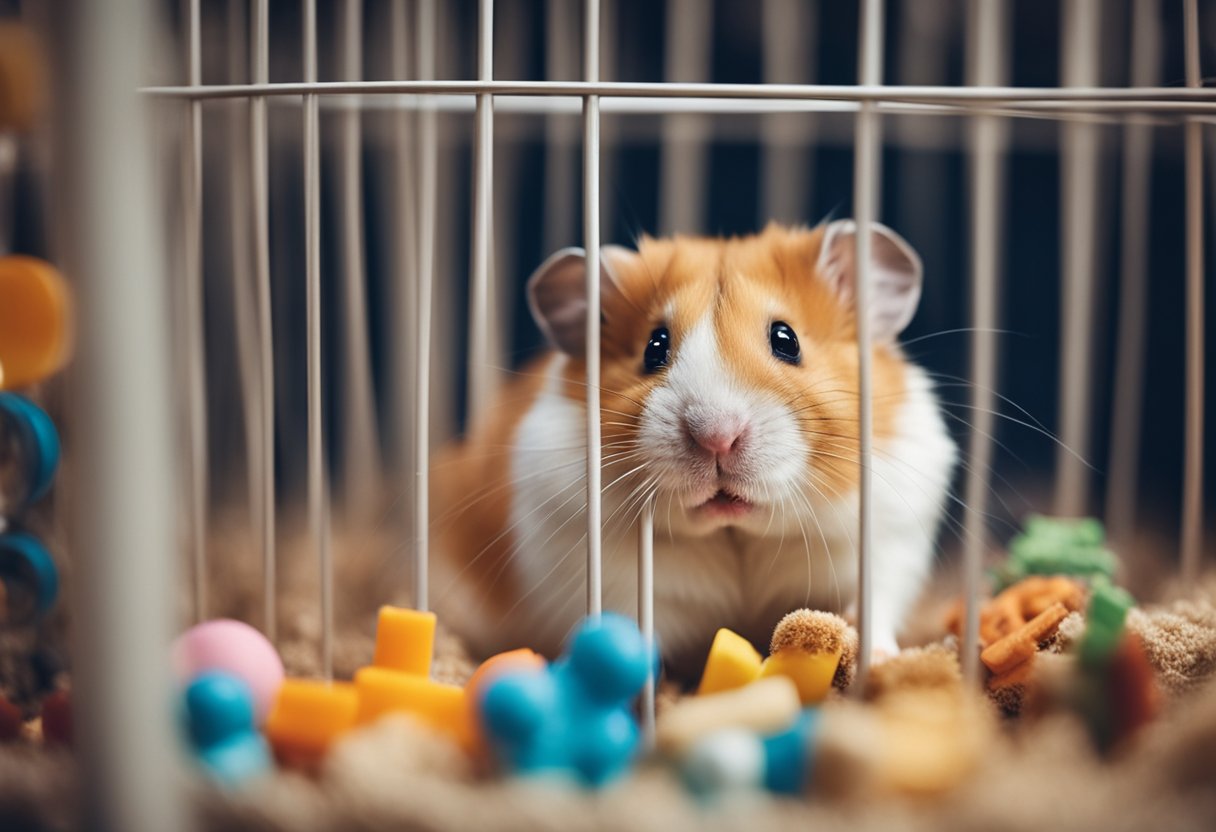
How can I tell if my hamster is experiencing sadness?
It can be difficult to tell if your hamster is experiencing sadness, as they are not able to communicate their emotions verbally. However, some signs that may indicate your hamster is sad include lethargy, loss of appetite, excessive grooming, and cage aggression. If you notice any of these behaviors, it may be a sign that your hamster is feeling down.
What signs indicate that a hamster may be feeling lonely?
Hamsters are social animals and can become lonely if they do not have enough social interaction. Signs that your hamster may be feeling lonely include excessive sleeping, lack of appetite, and decreased activity levels. Providing your hamster with plenty of toys and interaction can help prevent loneliness.
Can hamsters develop emotional attachments to their owners?
While hamsters may not form emotional attachments to their owners in the same way that dogs or cats do, they can still recognize their owners and may enjoy spending time with them. Spending time with your hamster and providing them with plenty of social interaction can help strengthen your bond.
Is it possible for hamsters to perceive and react to human emotions?
There is no evidence to suggest that hamsters can perceive or react to human emotions. However, they may be able to recognize their owner’s scent and associate it with positive or negative experiences.
What behaviors suggest a hamster might be emotionally distressed?
Hamsters that are emotionally distressed may exhibit behaviors such as biting their cage, excessive grooming, and pacing. These behaviors may be a sign that your hamster is feeling stressed or anxious.
How do hamsters typically express sadness or depression?
Hamsters may express sadness or depression by becoming lethargic, losing their appetite, and exhibiting other signs of illness. If you suspect that your hamster is sad or depressed, it is important to take them to a veterinarian to rule out any underlying health issues.
